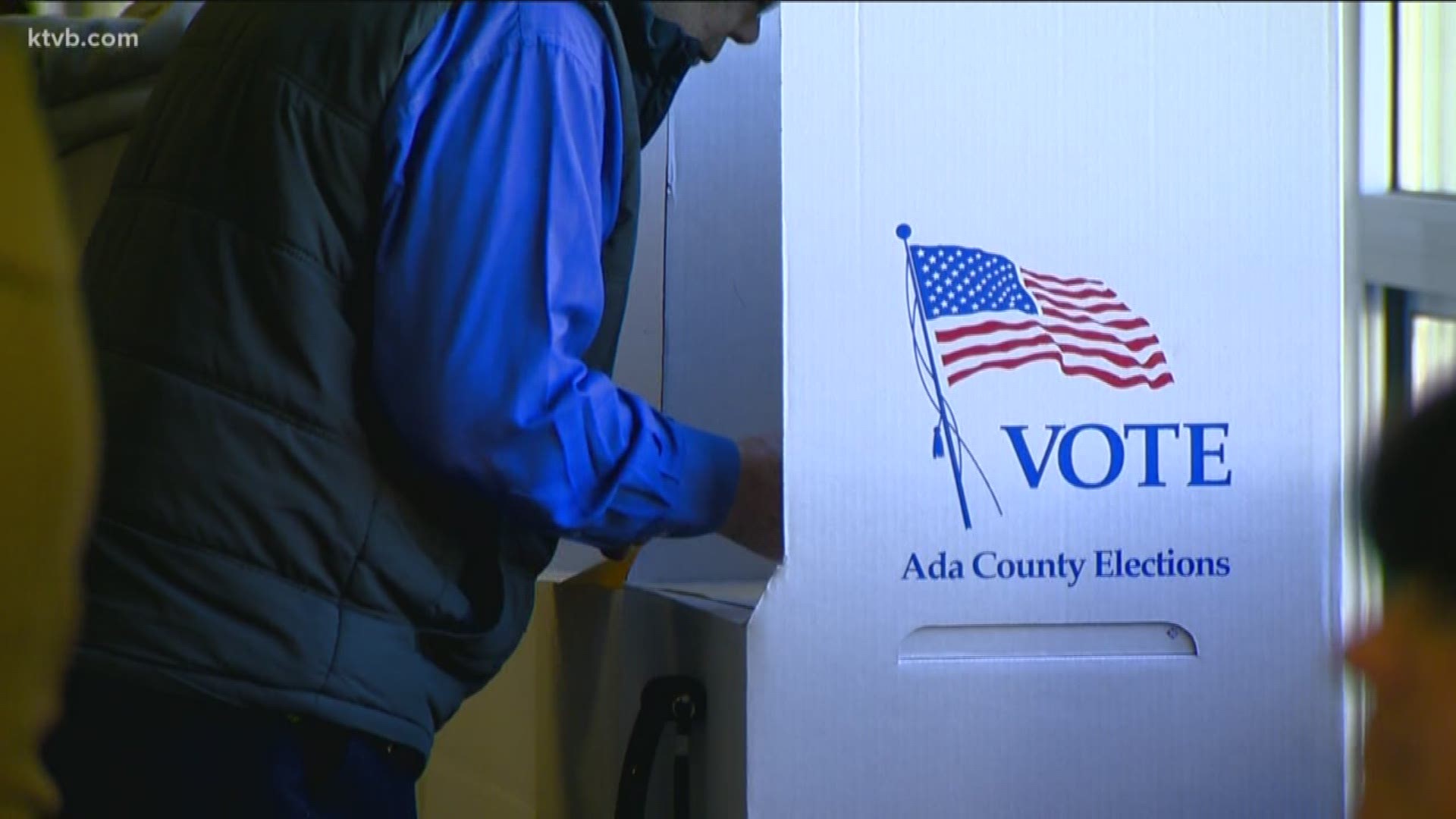BOISE, Idaho — One of the most contentious bills to come out of this legislative session moved a little closer to becoming law on Tuesday.
Senate Bill 1159 would make it more difficult to get voter-backed initiatives on the ballot, and it got another green light.
The House State Affairs Committee voted 10 to 5 to send the bill to the House floor for debate with a ‘do pass’ recommendation. While most Republicans support the bill, there are some who spoke out against it in the hearing.
Meanwhile, a new report released on Monday claims the bill would make Idaho the strictest in the nation when it comes to rules surrounding voter-backed initiatives.
Critics of the bill include former Idaho Attorney General David Leroy.
“The practical effect of this bill would be to kill the initiative process in Idaho, in my opinion,” Leroy said.
The bill would increase the number of signatures required from 6 percent to 10 percent of registered voters. It also nearly doubles the number of legislative districts where those signatures must come from. Current law mandates that signatures need to come from 18 legislative districts. This would increase it to 32 of Idaho's 35 legislative districts. The bill would also reduce the time to gather signatures from 18 months to 6 months.
"You certainly arguably make Idaho among the most difficult if not the most difficult state in the union to pass an initiative,” Leroy said. “The bottom line is that when you increase the number of signatures required by two-thirds and decrease the amount of time to collect those signatures by two-thirds, you are making it very difficult indeed to ever pass an initiative in the future in this state.”
If the bill does become law, Leroy thinks it would be challenged in the courts to see if it's constitutional.
"It would be my opinion that this bill is likely unconstitutional," he said.
A report put together by a Concordia law student on behalf of the Senate Democrats comes to the same conclusion.
"What you're doing is asking campaigns to gather twice as many signatures in twice as many places in the third of the time and that's really just unfeasible for most grassroots campaigns,” Colin Nash said.
Nash's report compares Idaho to other states that allow voter initiatives.
"What this bill has that others don't, is that it incorporates the most difficult requirements from all the states into one,” he said.
The bill's sponsor, Republican Sen. Scott Grow, said this wouldn't make Idaho the toughest state for voter initiatives but admits it does make things more difficult.
"No, It certainly would be more strict than the current law," Grow said. "No doubt about that."
The bill passed out of the Senate on a close 18-17 vote on Friday.
Grow told KTVB he pulled all the numbers from other states' requirements.
"Utah has 90 percent of legislative districts,” he said. "We have several states that have 180 days or six months if you want to call it that."
Utah, for instance, requires 10 percent of signatures, like the proposed Idaho bill, but that's 10 percent of votes cast in the last presidential race, not total registered voters that Idaho would require.
"If you look at strictly registered voters, that would be slightly higher but when you have a general election for a president that is your big turnout,” Grow said.
Another argument from Grow is that other states have a higher threshold when it comes to percentages of signatures. He has mentioned Oklahoma as an example as needing 15 percent of voter signatures and Mississippi needing 12 percent of signatures.
A big difference though is that both of those numbers are for getting a constitutional amendment on the ballot, something that voters aren't even allowed to do in Idaho.
In Oklahoma, in order to get an initiated state statute on the ballot, a group would need to gather signatures equal to 8 percent of the votes cast in the last governor's race. Leroy said the two things are very different and it should be harder to change a state's constitution. He noted that the total numbers for a constitutional amendment process aren't comparable to the numbers needed for an initiated state statute.
The bill that has some opposition from Republicans, including Rep. Priscilla Giddings of Whitebird, who testified against it in a House committee on Tuesday.
“It degrades Idaho’s system of checks and balances, by changing the full requirements, which would be the most difficult initiative process in the United States," Giddings said.

